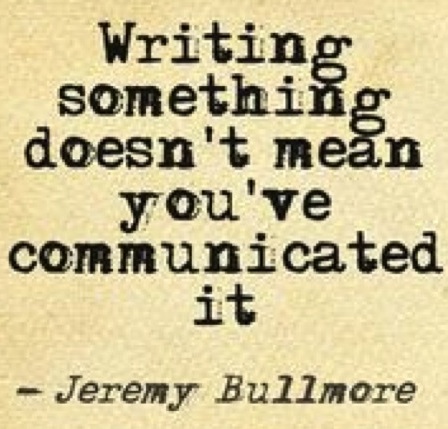Words are important. Get them wrong and you’ll lose business.
I lose track of how many times people ask me to ‘work my magic’ on something

But writing well has nothing to do with magic. It’s much more logical than that. It’s about thinking clearly, understanding what you’re offering and what your customers need – and then writing in a way they understand. Because the way you communicate has a direct effect on getting customers to trust you, do business with you, and use you rather than the competition.
“Our email and social campaign was activated last week and within five days, we received five solid enquiries for our systems. Thank you for your help.”
Michelle Sozanska, marcom leader – uk & ireland, PARKER HANNIFIN LTD
I put a lot of hard graft into a project before I even start to write

I have to get to grips with what you do, your industry, who your customers are and what kind of organisation you work for. The prep I put in before I start writing can sometimes take longer than creating the message, but it’s a vital step in the copywriting process.
The way a business speaks to me is important
My background is in advertising and marketing, yes, but I’ve also had experience in a variety of other industries (in fact, I couldn’t do what I do if I hadn’t worked in business for nearly 30 years).
In my last ‘real’ job, I worked in customer service visiting clients who were sometimes disgruntled about the service they’d received. And on the flip side, I’m often a customer myself.
So I know that it’s important for a business to be straightforward with me, to communicate clearly, to be reasonable and logical. And I’m a firm believer that the way a company does business is reflected in the way that their copy is written, in the language and style that they use in their emails, their marketing materials and on their website.
You’ve probably seen the basics of copywriting defined as Audience, Purpose and Message elsewhere. But it’s true – to get it right, you have to understand your audience (most important), define what you’re trying to say, and know what you want your customers to do.
Does tone of voice matter?
We’ve all heard of ‘tone of voice’. But what is it?
Quite simply, it’s a way of writing that reflects the culture and values of your business. More importantly, it’s using language and style that’s appropriate for your audience.
For example, if you’re explaining mortgages to a first time buyer, it should be written one way. If you’re explaining complicated lending policy to a mortgage broker, it should be written another. Agreed? There’s no point in using jargon and acronyms with someone who doesn’t understand the difference between a repayment and an interest-only mortgage. Likewise, you’d sound patronising if you were explaining the basics of lending to an experienced financial advisor.
So yes, writing in a way that your audience ‘gets’ does matter. It’s not about dumbing down – it’s about getting the message across clearly and quickly.